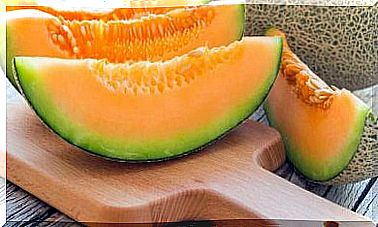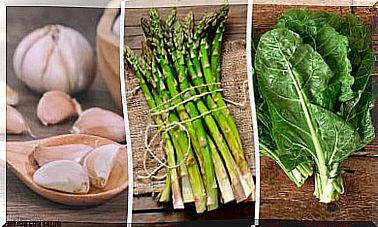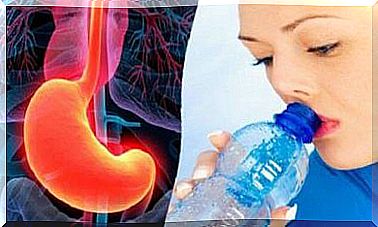Four Symptoms Of Potassium Deficiency
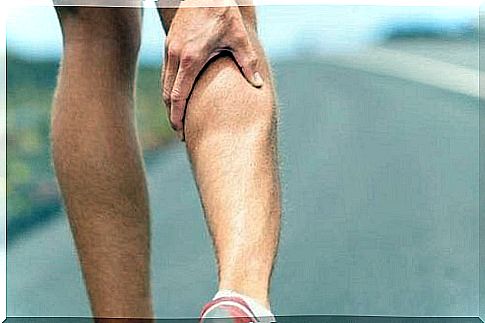
A potassium deficiency can negatively affect the nerves and the way the nerves interact with the muscle cells in the digestive tract, heart, and other bodily systems.
Most of the potassium in your body can be found in your body cells. If there is no balance between the absorption and excretion of potassium, you may develop a potassium deficiency.
Usually there is enough in your food, but for example vomiting and severe diarrhea can cause an imbalance.
But how can you know if you are getting too little of this mineral? In this article we explain what the symptoms of a potassium deficiency are. Pay close attention to see if you might be suffering from it yourself.
Symptoms of a potassium deficiency
1. You constantly feel weak and tired

Some of the first symptoms of a potassium deficiency are usually muscle aches, cramps, and abnormal weakness. This weakness will be felt not only in your arms and legs, but also in the muscles of your respiratory and gastrointestinal tract.
Low potassium levels prevent muscle cells from properly replenishing their energy stores. This prevents the muscles from contracting properly.
Weakness, muscle spasms and a tingling or numb feeling in the muscles may indicate that the deficiency is increasing. If you are already experiencing any of these symptoms, we recommend that you see a doctor right away to have your potassium levels measured.
2. Irregular Heartbeat
If there is a lack of potassium in the body for a long time, this can have an effect on the heart in severe cases. Normal heart function can change.
The first symptom of this will be an irregular heartbeat for no apparent reason.
However, it is not normal for this to occur while you are just doing your daily routine. With a prolonged shortage of potassium , the heart rate can slow down and cause dizziness as a result. It can eventually even lead to cardiac arrest.
There are different forms of cardiac arrhythmias. Some shapes cause the heart to beat faster, while others cause the heart to beat slower. In the most severe cases, your heart may skip beats.
All forms of arrhythmia can cause a variety of symptoms, from lightheadedness to fainting. An irregular heartbeat, regardless of the cause, can be accompanied by shortness of breath, chest pain and sweating.
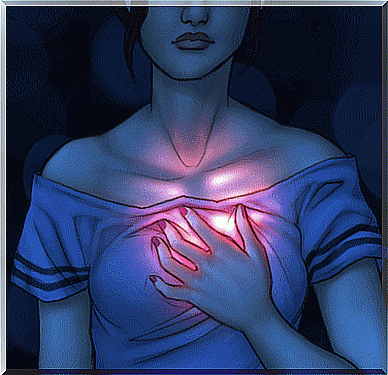
3. High Blood Pressure
Your blood pressure is influenced by several factors, such as your family history, being overweight and your salt intake. But a shortage of potassium can also affect high blood pressure.
Potassium counteracts the effect sodium has on blood pressure. A deficiency of potassium can therefore cause changes in your blood pressure. According to several studies, consuming too much salt and too little fruit and vegetables can eventually lead to high blood pressure.
4. Cramp
The state of your muscles during relaxation and contraction largely depends on your potassium levels. Relaxation can be voluntary or involuntary, depending on the muscle you are using.
When there is a deficiency of potassium, the muscle remains in a tense state that causes cramping. Therefore, if you regularly suffer from cramps in your legs, for example, this may be an indication that you are not getting enough potassium.
This is very common in athletes who train a lot and hard. If this applies to you, then it is wise to start drinking sports drinks that are rich in electrolytes and potassium.
Foods Rich in Potassium
When talking about potassium, most people often think that bananas are the best source of it. While it is true that this fruit contains a good amount of potassium, this is obviously not your only option.
Some of the foods that can help you get enough potassium naturally are listed below.

Swiss chard
This vegetable is easy to grow and delicious to eat. Just 100 grams of Swiss chard provides your body with 380 milligrams of potassium. This vegetable is best consumed in salads or smoothies.
bananas
As we mentioned, bananas are well known for being rich in potassium, as 100 grams of bananas already provide the body with 370 milligrams of potassium.
However, remember that if you are diabetic, it is wise not to consume too many bananas.
potatoes
If you’re someone who likes a little mashed potatoes, you’ve probably never experienced any of the above symptoms.
- Potatoes contain 418 milligrams of potassium per 100 grams.
- To prevent this mineral from being lost during the cooking process, it is best to bake potatoes in the oven, grill or steam them.
- Remember that it is better to avoid fried potato.
cabbage
This is also a great vegetable that provides the body with 450 milligrams of potassium per 100 grams.
We love to eat this vegetable in salads or dishes.
Avocado
Avocado offers 487 milligrams of potassium per 100 grams of flesh. You can eat avocado in the form of guacamole, in salads or on a toasted sandwich.
Spinach
Spinach is a great leafy vegetable that you can add to all kinds of dishes. Per 100 grams, it provides the body with no less than 554 milligrams of potassium.
Chances are you don’t think about potassium deficiency at all when you think about all the nutrients your body needs to stay healthy. However, remember that this mineral plays a fundamental role in many bodily functions.
Now that you have a list of some potassium-rich foods, it would be wise to include these foods in your diet on a regular basis.


